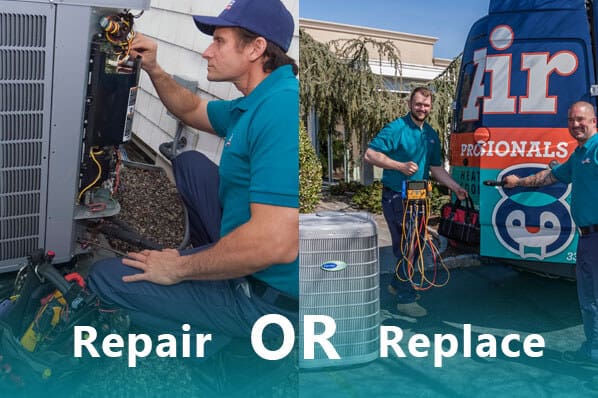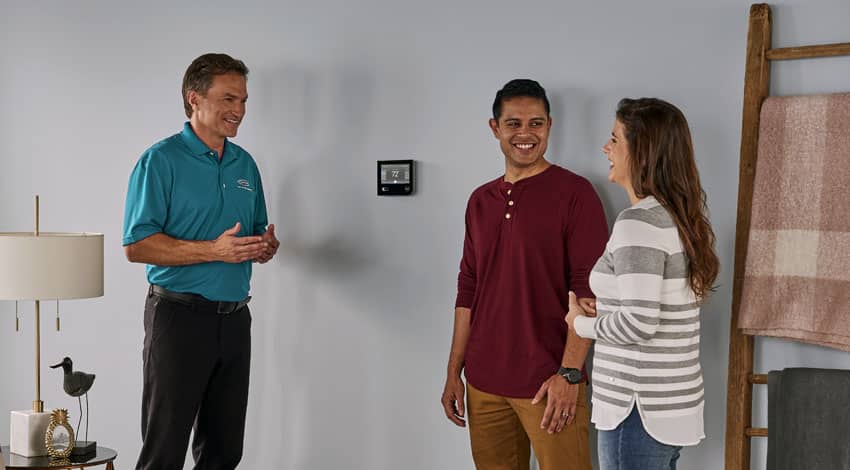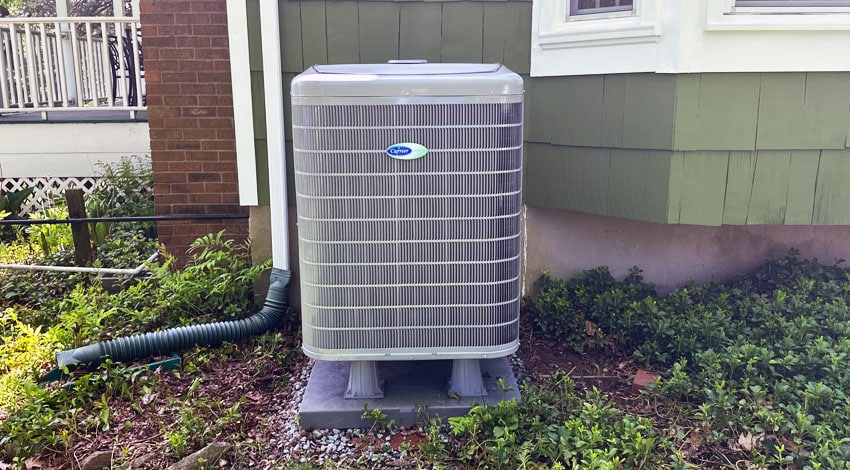Have you ever been caught deciding between replacing your A/C unit or simply repairing it? The HVAC company you bought from will give you their recommendation. However, only you fully know your home’s needs, budget, and capabilities.
Here are ten things to consider before making a decision:
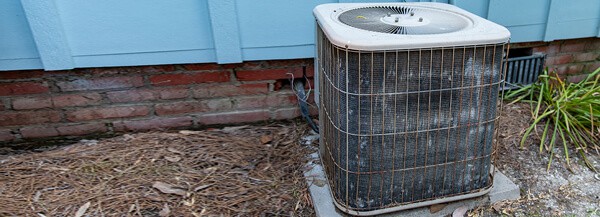
1. Age of your current air conditioning system
The United States Department of Energy places the average lifespan of an air conditioner unit at around 15 to 20 years. However, in warm places where air conditioners are used almost the entire year, their lifespans are much shorter. In places like these, the lifespan falls to around 10 to 12 years.
Ask yourself if it’s reaching the end of its recommended lifespan. If yes, then maybe it’s time for a replacement.
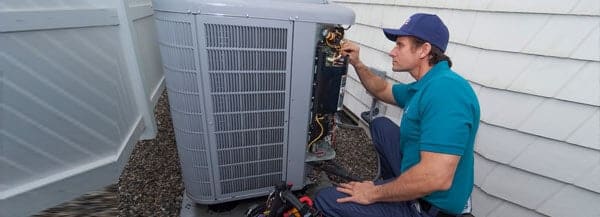
2. Cost of A/C Repairs
If you were to choose repairs over replacements, how much would it cost? Is it as simple as a clogged component? Or is the entire outdoor unit malfunctioning? Consider also that if your aircon is having major trouble, it might not just need a major repair, but multiple ones. These can be as expensive as buying an entirely new unit.
A good rule of thumb is that if your aircon is nearing the end of its lifespan, and if the repairs cost over 50% of the aircon itself, it’s time to replace it.
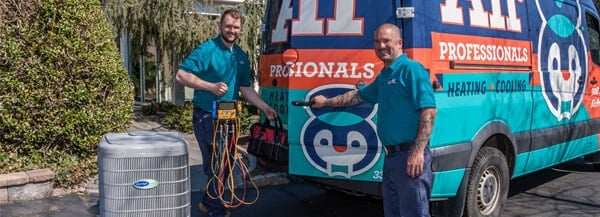
3. Air Conditioner Maintenance
Have you been properly maintaining your unit since you installed it? The recommended maintenance for air conditioning units is a check-up at least every year. This is so that problems can be detected before they require full-on repairs. Aside from check-ups, air conditioners need their filters changed and cleaned every 1 to 3 months, especially if the unit is somewhere exposed to dust and debris.
If you have been maintaining the unit well, then repairs can still help. Otherwise, the problems you are experiencing with the A/C unit now are likely deeper and more serious than you think. You may want to get a new unit and be sure to properly maintain that one.
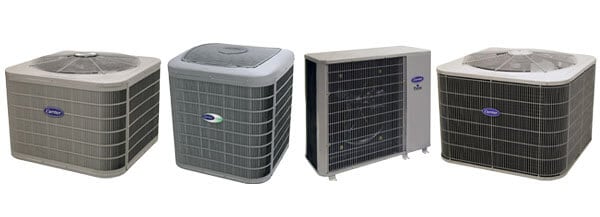
4. Energy Efficiency
The Seasonal Energy Efficiency Ratio (“SEER”), is the rating of how efficient an A/C system is. The higher its rating, the better. It means that the air conditioner can operate on less energy than other models.
Ever since the start of 2015, air conditioners in the United States are required to have a SEER of 14. Since then, air conditioners have been developed to gain as high as 25 SEER. Note, ductless systems go by a different SEER range.
An outdated A/C likely has a SEER that is too low for you to maintain cost-wise. Especially since air conditioners decrease in SEER over the years due to age and use. You want to have an aircon system that has an adequate SEER so that you can be cost-efficient in your use of energy as well. Both your budget and the environment will benefit from a higher SEER rating.
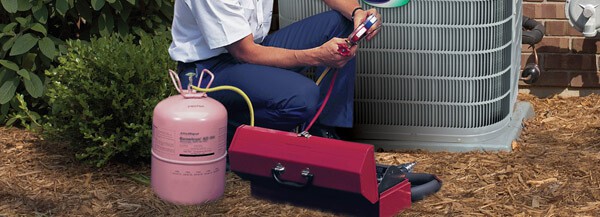
5. Use of Freon
Freon, or the refrigerant R22 or HCFC-22, has been phased out since the start of 2020. Most air conditioners that were manufactured several years ago still ran on Freon. If your air conditioner still runs on Freon, you should be aware that Freon can no longer be made in the US. So in this phase-out, it is sensible to switch to a system that doesn’t run on Freon, if you haven’t already.
Instead of Freon, air conditioners now run on Puron or R410A, which is better for the environment.
6. Does your System Match?
Most homeowners who have bought their homes from previous owners have probably had an AC system installed. In some cases, homeowners tend to replace the already-existing system, but only partially. Replacing either only your outdoor or indoor unit will cause a mismatch in the entire system. Since air conditioners are not meant to operate in a system that’s mismatched, this can unknowingly cause problems in energy efficiency or can be harder to repair. The warranty also gets voided.
If you did this and you are running into problems, we recommend a replacement.
7. Comfort Needs
Another thing to think about is how satisfied you are with your current HVAC system. For those who have been satisfied with its performance until problems arose, then you may simply want to do the repairs and keep that satisfaction.
However, for air conditioners that have not been operating well enough for your needs in the last few years, a replacement is called for. Not just your comfort needs, but its cooling, dehumidifying, and energy functions as well.
8. Advanced Technology
Consider whether or not it’s time for an update if you can afford it. HVAC technology has grown since 10 years ago. There are new functions such as variable speed, communicating systems, two-stage technology, smart thermostats, and interactive control.
These sound unnecessary, but air conditioners are now built to be more cost-effective, environmentally-friendly, and user-friendly. If you want to avail of any of these benefits, a replacement would be the right idea.

9. Incentives and Rebates
If you are leaning towards a full replacement, there are a lot of HVAC companies that offer incentives and promos for buying more energy-efficient units. You should check if any incentives are running at the moment, especially in your region. You could save plenty of money when buying a new air conditioner.
10. Home Lifespan
Do you think you’ll move out any time soon? If you are, maybe a full replacement isn’t needed yet. If you just need the system to last a few years more, then a repair will do. Save the new aircon installment for when you’ve settled in a place you know you will stay in for years and years.
If you are considering selling your home, note that a new A/C system could raise the selling price of your house. It can be a great asset.
The Decision
Ultimately, the decision is still up to you. But hopefully, we helped you weigh the options for you to come to a decision that is best for you.


